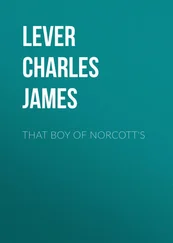Charles Lever - Tony Butler
Здесь есть возможность читать онлайн «Charles Lever - Tony Butler» — ознакомительный отрывок электронной книги совершенно бесплатно, а после прочтения отрывка купить полную версию. В некоторых случаях можно слушать аудио, скачать через торрент в формате fb2 и присутствует краткое содержание. Жанр: literature_19, foreign_antique, foreign_prose, на английском языке. Описание произведения, (предисловие) а так же отзывы посетителей доступны на портале библиотеки ЛибКат.
- Название:Tony Butler
- Автор:
- Жанр:
- Год:неизвестен
- ISBN:нет данных
- Рейтинг книги:3 / 5. Голосов: 1
-
Избранное:Добавить в избранное
- Отзывы:
-
Ваша оценка:
- 60
- 1
- 2
- 3
- 4
- 5
Tony Butler: краткое содержание, описание и аннотация
Предлагаем к чтению аннотацию, описание, краткое содержание или предисловие (зависит от того, что написал сам автор книги «Tony Butler»). Если вы не нашли необходимую информацию о книге — напишите в комментариях, мы постараемся отыскать её.
Tony Butler — читать онлайн ознакомительный отрывок
Ниже представлен текст книги, разбитый по страницам. Система сохранения места последней прочитанной страницы, позволяет с удобством читать онлайн бесплатно книгу «Tony Butler», без необходимости каждый раз заново искать на чём Вы остановились. Поставьте закладку, и сможете в любой момент перейти на страницу, на которой закончили чтение.
Интервал:
Закладка:
“Such a day as I have had,” cried he, as he entered the dressing-room, where Lady Lyle was seated with a French novel. “Those fellows at the bank, led on by that creature M’Candlish, had the insolence to move an amendment to that motion of mine about the drainage loan. I almost thought they’d have given me a fit of apoplexy; but I crushed them: and I told Boyd, ‘If I see any more of this, I don’t care from what quarter it comes, – if these insolences be repeated, – I’ ll resign the direction. It’s no use making excuses, pleading that you misunderstood this or mistook that, Boyd,’ said I. ‘If it occurs again, I go.’ And then, as if this was not enough, I ‘ve had to talk French all the way out. By the way, where’s Maitland?”
“Talk French! what do you mean by that?”
“Where’s Maitland, I say?”
“He’s gone off with Mark to Larne. They said they ‘d not be back to dinner.”
“Here’s more of it; we shall have this foreign fellow on our hands till he comes, – this Italian Count. I found him at M’Grotty’s, and brought him back with me.”
“And what is he like? is he as captivating as his portrait bespeaks?”
“He is, to my mind, as vulgar a dog as ever I met: he smoked beside me all the road, though he saw how his vile tobacco set me a-coughing; and he stretched his legs over the front seat of the carriage, where, I promise you, his boots have left their impress on the silk lining; and he poked his cane at Crattle’s wig, and made some impertinent remark which I could n’t catch. I never was very enthusiastic about foreigners, and the present specimen has not made a convert of me.”
“Maitland likes him,” said she, languidly.
“Well, then, it is an excellent reason not to like Maitland. There’s the second bell already. By the way, this Count, I suppose, takes you in to dinner?”
“I suppose so, and it is very unpleasant, for I am out of the habit of talking French. I ‘ll make Alice sit on the other side of him and entertain him.”
The news that the distinguished Italian friend of Mr. Norman Maitland had arrived created a sort of sensation in the house; and as the guests dropped into the drawing-room before dinner, there was no other topic than the Count. The door at last opened for his entree ; and he came in unannounced, the servant being probably unable to catch the name he gave. In the absence of her father and mother, Mrs. Trafford did the honors, and received him most courteously, presenting the other guests to him, or him to them, as it might be. When it came to the turn of the Commodore, he started, and muttered, “Eh, very like, the born image of him!” and coloring deeply at his own awkwardness, mumbled out a few unmeaning commonplaces. As for the Major, he eyed him with one of his steadiest stares, – unflinching, un-blenching; and even said to Mrs. Trafford in a whisper, “I didn’t catch the name; was it Green you said?” Seated between Lady Lyle and Mrs. Trafford, M’Caskey felt that he was the honored guest of the evening: Maitland’s absence, so feelingly deplored by the others, gave him little regret; indeed, instinct told him that they were not men to like each other, and he was all the happier that he had the field for a while his own. It was not a very easy task to be the pleasant man of an Irish country-house, in a foreign tongue; but if any man could have success, it was M’Caskey. The incessant play of his features, the varied tones of his voice, his extraordinary gestures, appealed to those who could not follow his words, and led them very often to join in the laughter which his sallies provoked from others. He was, it is true, the exact opposite to all they had been led to expect, – he was neither well-looking, nor distinguished, nor conciliatory in manner, – there was not a trace of that insinuating softness and gentleness Maitland had spoken of, – he was, even to those who could not follow his speech, one of the most coolly unabashed fellows they had ever met, and made himself at home with a readiness that said much more for his boldness than for his breeding; and yet, withal, each was pleased in turn to see how he out-talked some heretofore tyrant of conversation, how impudently he interrupted a bore, and how mercilessly he pursued an antagonist whom he had vanquished. It is not at all improbable, too, that he owed something of bis success to that unconquerable objection people feel at confessing that they do not understand a foreign language, – the more when that language is such a cognate one as French. What a deal of ecstasy does not the polite world expend upon German drama and Italian tragedy, and how frequently are people moved to every imaginable emotion, without the slightest clew to the intention of the charmer! If he was great at the dinner-table, he was greater in the drawing-room. Scarcely was coffee served than he was twanking away with a guitar, and singing a Spanish muleteer song, with a jingling imitation of bells for the accompaniment; or seated at the piano, he carolled out a French canzonette descriptive of soldier life, far more picturesque than it was proper; and all this time there was the old Commodore cruising above and below him, eying and watching him, – growing perfectly feverish with the anxiety of his doubts, and yet unable to confirm or refute them. It was a suspicious craft; he felt that he had seen it before, and knew the rig well, and yet he was afraid to board and say, “Let me look at your papers.”
“I say, Beck, just go slyly up and say something accidentally about Barbadoes; don’t ask any questions, but remark that the evening is close, or the sky threatening, or the air oppressive, just as it used to be before a tornado there.” The old sailor watched her, as he might have watched a boat-party on a cutting-out expedition; he saw her draw nigh the piano; he thought he could trace all the ingenious steps by which she neared her object; and he was convinced that she had at last thrown the shell on board him; but what was his grievous disappointment, as he saw that the little fellow had turned to her with a look of warmest admiration, and actually addressed a very ardent love-song to the eyes that were then bent upon him. The Commodore made signals to cease firing and fall back, but in vain. She was too deeply engaged to think of orders; and there she stood to be admired and worshipped and adored, in all the moods and tenses of a French “romance.” But Miss Rebecca Graham was not the only victim of the Major’s captivations; gradually the whole company of the drawing-room had gathered round the piano, some to wonder, some to laugh at, some to feel amused by, and not a few to feel angry with, that little fiery-eyed, impertinent-looking fellow, who eyed the ladies so languishingly, and stared at the men as if asking, “Who’ll quarrel with me?” You might not like, but it was impossible to ignore him. There was, too, in his whole air and bearing a conscious sense of power, – a sort of bold self-reliance, – that dignifies even impudence; and as he sat in his chair with head up and hands vigorously striking the chords of the piano, he looked, as it is by no means improbable that he felt, “M’Caskey against the field.” It was in the midst of hearty applause at a song he had just completed, that Maitland entered the room. In the hall he had learned from the servants that his foreign friend had arrived, and he hurried forward to greet him. Rather puzzled at the vociferous gayety of the company, he made his way through the crowd and approached the piano, and then stood staring on every side, to find out his friend. Though he saw the Major, his eye only rested passingly on him, as it ranged eagerly to catch the features of another.
“He’s very amusing, though not in the least what you led us to expect,” whispered Mrs. Trafford. “Who is it of whom you are speaking?” “Your friend yonder, the Count Caffarelli.” “What – that man?” cried Maitland, as he grew pale with passion; and now, pushing forward, he leaned over the back of the music-stool, and whispered, “Who are you that call yourself Count Caffarelli?”
Читать дальшеИнтервал:
Закладка:
Похожие книги на «Tony Butler»
Представляем Вашему вниманию похожие книги на «Tony Butler» списком для выбора. Мы отобрали схожую по названию и смыслу литературу в надежде предоставить читателям больше вариантов отыскать новые, интересные, ещё непрочитанные произведения.
Обсуждение, отзывы о книге «Tony Butler» и просто собственные мнения читателей. Оставьте ваши комментарии, напишите, что Вы думаете о произведении, его смысле или главных героях. Укажите что конкретно понравилось, а что нет, и почему Вы так считаете.












